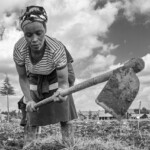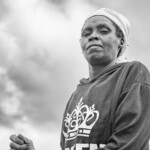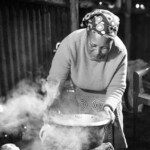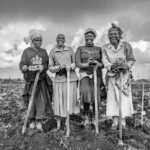A long time ago a client asked me to document a forestry project in the rural town of Hojancha in northern Costa Rica. I took photos of proud men standing by amazing stands of introduced eucalypts, Gmelina and teak. The trees were grown for both timber and firewood. But I learned the women weren’t too crazy about eucalypts as firewood. They said they didn’t like the smell and it made their gallo pinto taste bad. No one bothered to ask the women about their preferences before the trees were planted.
That remained on my mind and a couple of years later, I travelled again to Hojancha. This time I went to conduct research for my MSc thesis. The research opened my eyes to the critical role women play in agriculture and forestry … and how at that time their voices simply weren’t heard.
Four decades later and things have changed enormously. The role of women in agriculture has been addressed in nearly all new development projects.
I travelled to Kenya last month where up to 75% of the agricultural labor force is women. But they have a lot of challenges like limited access to financing, education and land.
In the central highlands of Kenya, I watched as a group of farmers … mainly women … did backbreaking work to harvest a potato field with hoes.
After the field was harvested, researchers from the International Potato Center who had received support from the Government of Norway via the Crop Trust’s BOLD Project asked the women what were the most important traits they looked for in potatoes. They placed seeds in bags to indicate their trait preference, such as cooking time, skin colour and tuber size. And then they went out into the fields with hundreds of mounds of potatoes and voted for a few which they most preferred. The men did the same thing.
The researchers will segregate the data and determine if the preferences of women are different than men. They will then use those farmer preferences to help guide them when they are choosing which potato clones to advance for further trials. The farmers will play a key role in helping determine which potato clones are chosen for possible release as varieties in Kenya.





